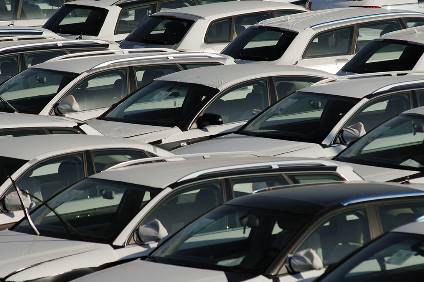
The UK car market continued its underlying recovery in the month of August – though sales were 5.8% down on last year (which compares with a gain during the month of July).
Data from the SMMT showed that just over 87,000 vehicles were registered during what is traditionally the quietest month of the year for new car sales.

Discover B2B Marketing That Performs
Combine business intelligence and editorial excellence to reach engaged professionals across 36 leading media platforms.
While registrations to private buyers held relatively steady, down by 699 units in the month, demand from businesses of all sizes was much more subdued, with 2,650 fewer new cars joining UK fleets, down 5.5% on August 2019. Demand also fell across all segments except superminis, with the biggest declines in demand seen in the mini (-64.2%) and specialist sports (-41.9%) categories.
Zero emission-capable vehicles enjoyed a bumper August as a result of new models coming to market, with sales of plug-in hybrids (PHEVs) increasing by 221.1%, although they still only accounted for 1 in 30 sales. Registrations of battery electric cars increased by 77.6% in the month, accounting for 6.4%. However, they make up just 4.9% of registrations year to date, up from 1.1% in the same period last year – clearly illustrating the scale of the challenge ahead to reach the government target for EVs to comprise 70% of new car sales by 2030.
Overall, new car registrations remain down by 39.7% in the year to date, some 600,000 units behind this time in 2019, following coronavirus enforced lockdowns.
In the month of August, Ford market leader Ford took three of the top five model sellers list. The Ford Fiesta was the biggest seller (3,372 units sold) followed by the VW Golf, (2,570), Ford Focus (2,391), Ford Puma (2,128) and Vauxhall Corsa (2,081).
Mike Hawes, SMMT Chief Executive, said: “The decline is disappointing, following some brief optimism in July. However, given August is typically one the new car market’s quietest months, it’s important not to draw too many conclusions from these figures alone. With the all-important plate change month just around the corner, September is likely to provide a better barometer. As the nation takes steps to return to normality, protecting consumer confidence will be critical to driving a recovery.”
Michael Woodward, UK automotive lead, Deloitte, highlighted industry concerns over the outlook beyond September as post-lockdown pent-up demand is largely met. He said: “New car sales fell by 6% in August compared to the same period last year, in what is traditionally one of the quietest months in the automotive calendar.
“Monthly new car sales are almost back to pre-pandemic levels and there is hope that September, a key month for new car sales, will be a bumper month for the industry as consumers take advantage of enticing discounts to secure a new 70 plate. However, according to our latest research, nearly half of consumers are planning to keep their current vehicle for longer than planned meaning that once pent up demand is met, sales may subsequently drop off.
“Demand over the course of the year will also likely be affected by consumers’ financial situations. Should unemployment rates continue to rise, new car sales could stall. However, with many consumers looking for a public transport alternative, demand for cheaper models could fuel the used car market.
“The auto industry typically works on a five to six month production planning cycle meaning that if September doesn’t herald an uptick in sales, more challenging decisions may need to be made for Spring 2021. Some manufacturers might predict sales returning to normal over the next six months, but the consensus view is likely to be less optimistic, potentially impacting planned production.
“Should factories continue to operate below capacity, the pandemic financial support from manufacturers that has been offered to dealerships to date will likely be reduced, or in some cases withdrawn. This could lead to further discounting to ensure new car stock is moved quickly from forecourt to consumer.”






